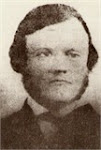It is now virtually certain that a comprehensive smoking ban will become law in Monona. Indeed, there are now two competing smoking ban proposals. The proposals are likely to be very similar (we don't have the details of the ad hoc committee's recommendation yet), except for the implementation date. The referendum ban would would go into effect on November 14, 2008. As reported here Smoking Ban Committee Update, the ad hoc committee's recommended implementation date is October 1 , 2010.
The Breathe Free Monona group met this afternoon (May 10, 2008) at the Monona Community Center. (Even though this meeting was not technically a public meeting and they paid for the room, the Breathe Free Monona group was kind enough to allow nonmembers to attend, including Bob Miller and I as well as a couple of business owner opponents.) The group discussed the particulars of their proposal and kicked off its petition drive to place a binding referendum, also known as direct legislation (see, sec. 9.20 Wisconsin Statutes), on the November 2008 ballot.
The proposed ordinance creates a comprehensive ban on smoking in indoor public places, but does allow an exception for a tobacco bar. The ban would go into effect upon publication pursuant to s. 9.20 "within 10 days after the election". In other words, the referendum ban, if it gets on the ballot and passes would go into effect on November 14, 2008.
The group has 60 days to gather the signatures of "at least 15% of the votes cast for governor at the last general election" or 642 signatures. (Monona had 4276 votes cast in the last governor's election). The expectation is that the group will gather the signatures in much less 60 days.
Dane County Fall election results for 2006 http://www.co.dane.wi.us/coclerk/elect2006d.html
Once the petitions are submitted the city clerk has 15 days to "determine by careful examination whether the petition is sufficient and whether the proposed ordinance or resolution is in proper form" and certify those results to the city council. The city council then has thirty days to either adopt the ordinance or submit to the voters.
However, direct legislation may not be used to amend or repeal an existing ordinance if that ordinance is adopted prior to the clerk's certification. See, Mount Horeb Community Alert v. Village Board of Mt. Horeb, 2003 WI 100, 263 Wis. 2d 544, 665 N.W.2d 229, 01−2217. Thus, if the city council adopts a smoking ban ordinance before the clerk certifies the signatures, then the referendum could not be held.
Alder Bob Miller stated today that he expects the ad hoc committee will hold two more meetings (May 15 and May 29) before making a recommendation to the council. The recommendation could come to the council at the first meeting in June and possibly be voted on at the second June meeting. My guess is that the referendum petitions will have been submitted and certified before the council acts. (It is not clear whether the council could still adopt a smoking ban ordinance pending the referendum although the referendum results would take precedence).
(BTW, to squelch a crazy rumor floating around town, neither this ordinance nor the one originally drafted by Peter McKeever and myself would prohibit smoking in private residences.)
It is rather amazing to see how the landscape has changed in a short period of time. Alder McKeever and I had talked about bringing up a smoking ban proposal for some time, but didn't do so until late February 2008 in part because it was very unclear what its fate would be. I don't think either of us ever imagined that we would end up with two competing proposals for a comprehensive smoking ban.
The public health benefits of a smoking ban are real, large, and nearly immediate. See two studies of the health benefits in Helena, Montana and Pueblo, Colorado. Helena enjoyed a 40% drop in hospital admissions for heart attacks (compared to the same six-month period from the year before) while nearby communities without bans experienced no changes in heart attack rates. Pueblo Hospital admissions for acute heart attacks dropped 27% for the one and a half year period after the ban compared to the same time frame prior to the ban. [See, Sargent et al (2004) BMC, vol. 328, pages 977-980 and Bartecchi et al (2006) Circulation, vol. 114, pages 1490-1496].
Helena study: http://www.bmj.com/cgi/content/full/328/7446/977
Pueblo study: http://circ.ahajournals.org/cgi/reprint/114/14/1490
Editorial: http://circ.ahajournals.org/cgi/reprint/114/14/1450.pdf
Neither proposal is ideal. The ad hoc committee recommendation would delay these significant public health improvements in Monona for nearly two and a half years. The referendum initiative, however, would implement the ban so quickly that businesses will not have enough time to change their business plans, get city approvals for outdoor smoking areas or beer gardens, obtain the capital to make the changes, and actually makes the changes. For what it's worth, I would like to see the council adopt a comprehensive ordinance with an implementation date in mid-2009 that would possibly give businesses actually within the Monona Drive construction zone until October 2010. But my guess is that the referendum initiative will be certified for the ballot before the council gets to vote on it.
Saturday, May 10, 2008
Subscribe to:
Post Comments (Atom)
















No comments:
Post a Comment